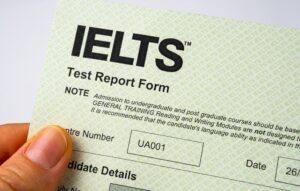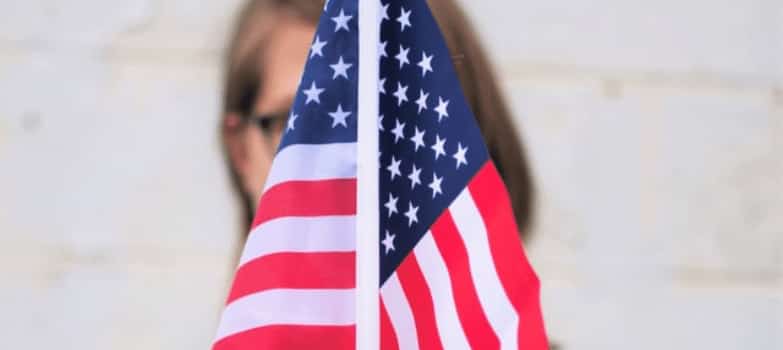Home » study in US
About Offer Letters & Getting Accepted: Enrolling Into A US University
There’s a plethora of complex emotions when it comes your study abroad application: excitement; anxiousness; self-doubt; confusion; frustration; and more.
But believe me, it gets worse when offer letters are involved, especially in the United States.
When you apply to a US university and the odds seem to be in your favor, you will either receive a conditional or unconditional offer letter.
As the name implies, a Conditional offer letter requires certain conditions to be met in order to get your admission confirmed by the university.
An Unconditional offer letter simply means you’ve met the entry requirements and you have a spot in the university!
However, students still come to our counsellors with the same question:
“How do I tell apart the two different offer letters issued by US universities?”
Let’s dive deeper into the topic to clear the confusion once and for all.
 Image source: Pexels
Image source: Pexels
Conditional Offer Letters Require Specific Documents
These documents may include certain grades or test scores. They vary depending on the requirements of each institution and student.
Universities will only issue conditional offer letters if there are documents pending from your side, such as a passport copy, English test score, semester mark sheet, and more. You will receive the admission notice once your documents are complete and payment has been made to the university.
Conditional offer letters may affect your student visa procedure because certain requirements must be completed before you enter the US. Always ensure that the information you submit is complete and accurate. Double-checking your documents won’t hurt!
Carefully Check The Details Of Unconditional Offer Letters
Getting an unconditional offer letter means good news.
But don’t let your excitement override logic.
Check the offer carefully. Despite meeting the academic requirements, you may still need to provide proof of your results or meet certain financial requirements.

Image source: Pexels
Besides, accepting the offer means you’re committing to attend the university. You can no longer make an insurance choice.
In short, no more Plan Bs.
Unconditional offer letters are normally issued to students who have met the entrance requirements and are already accepted by the university.
You will receive an unconditional offer letter by the university once you submit the complete documents and have paid the fees. It is important to remember that this letter is required for student loan applications.
To Get Accepted, Know What The University Wants
Offer letters aside, let’s talk about getting into the university that you’ve been eyeing for since you were a high schooler.
Did you know that universities have specific requirements that they look for in potential students before they accept an application? Your determination is admirable, but you’ll need more than that to get accepted into your dream university.
To increase your chances of getting accepted, your personal essay and interview with the university matter. You should pinpoint your strengths, experience, and skills, such as:
- Academic and non-academic achievements
- Experience and skills to succeed in the program and at the university
- How you showcase your enthusiasm in the subject area
- What your references say about you
I Got My Offer Letter. What Next?
1) Make Payment & Receive Your Acceptance Letter
When you receive a conditional / unconditional offer letter from the university, you’re only a few steps away to the finish line! If you receive a conditional offer letter, chances are you have to submit certain documents as requested by the university.
Next, you must be able to provide financial proof to show that you can cover the total fees stated in the offer letter. You must also submit all the remaining documents stated in your conditional offer letter and finally, pay the registration fee of approximately $300 and a deposit of $2,200.
Take note that the acceptance letter will not be released unless you complete the steps above.
2) Review Your Acceptance Letter & I-20
Once you get your acceptance letter, make sure to review all the information to ensure that everything is correct. The original copy of the I-20 document will also be sent directly to you, so you should confirm the recipient contact number and shipping address. The shipping can take up to five days or more.
3) Student Visa Application (F-1 Visa)
There’s no time to spare. You should hurry and book a visa appointment at the US Embassy in your area. Here’s a step-by step guide to help you with it.
4) Visa Interview – If You’re Prepared, You’re All Set!
An in-person interview is a common as part of the student visa application process.
Many of our students come to us full with worry, but our advice stays the same: always be prepared.
These tips can help nail your interview:
- You must attend the interview. If you can’t make it, reschedule it ahead of time.
- Think your answers through and reply with confidence and honesty. Don’t rush, you’ll end up stuttering!
- The interviewer wants to see that you’re dead serious about studying in the US. To be convincing, be clear about your program, the documents you’ve provided, as well as your intentions and future plans of studying in the US.
- Always speak in English. The Visa Official wants to know your proficiency level.
- Clarify questions that you do not understand. Don’t just assume based on your understanding and give an inaccurate answer! Which brings to my next point..
5) Interview Questions To Expect
The most common questions are:
- Self-introduction
- Your education history
- Your choice of study and university in the US
- Program details, such as course dates and duration.
These questions may seem unimportant to you, but they help the interviewer determine if you’re a genuine student who plans to further their studies in the US.
 Image source: Pexels
Image source: Pexels
Next, they will most likely ask about your financial circumstances. For example, the program fees, who is funding your education, and proof of your scholarship. Bring along financial documents to support your financial status.
Lastly, you should be able to demonstrate your understanding of living in the US as an international student, where your university and hostel is located, and how you will commute around the area.
6) Required Documents For The Interview
You must be able to provide the Visa official with a specific set of documents. Be sure to have all of these prepared before you attend the interview, or you will risk failing it before you even begun!
In general, you must have the following documents:
- Original copy of the I-20 documents
- Proof of payment
- Completed non-immigrant visa application form (DS-160 form)
- Acceptance letter from the university
- Passport
- Passport-sized photos
- Transcripts and certificates (Translated if necessary)
- Financial evidence
Intimidated already?
Don’t be!
As long as you’re punctual and follow every instruction given, you’re pretty much set for an unforgettable study abroad experience.
Better yet, throw your worries away by leaving the hard labor to us at Eduloco. Our counsellors are higher education experts who happen to be the pros at student visa applications. Contact us anytime, and we’re ready to help!
Ready to take charge of your future? Send your request to [email protected] or call +60 11-2069 9087.
Parents still hesitating to let you study abroad? These will help you convince them to let you go:


Jocelyn Cheng
Jocelyn Cheng (JC) is an INFP writer seeking to spread inspiration and spark connections through her words. Her dedication to writing has gifted her with an ability to write for multiple platforms (e.g., website, social media, newspaper, magazine, etc) in different fields, namely Education, Travel, and Lifestyle. JC personalizes her works by adding a touch of her own experience into the mix whenever she can to relate to her readers. A self-proclaimed poet and currently a freelance writer, she's working on an untitled poetry book at home while juggling between writing for Eduloco, dancing, and keeping her only plant alive.
Are you interested to study in abroad?
Please fill up the form and our conselors will get back to you shortly.
Most Popular Universities

Study Abroad Perks & How To Guarantee Your Spot
Study Abroad Perks & How To Guarantee Your Own Spot Your study overseas is worth every penny. Image source: Pexels When you study abroad, you experience better personal growth. Sure, studying abroad and navigating
Most Popular Universities

Study Abroad Perks & How To Guarantee Your Spot
Study Abroad Perks & How To Guarantee Your Own Spot Your study overseas is worth every penny. Image source: Pexels When you study abroad, you experience better personal growth. Sure, studying abroad and navigating
What's new

5 Easy and Affordable Recipes for Students Away from Home! – Eduloco Recipes
Looking for some easy and wallet-friendly recipes? You’re in the right place! At Eduloco, we understand the student life hustle, and that’s why we’ve curated

How to Write a Convincing University Application Personal Statement (+ Free Template!)
Applying to universities can often feel like navigating a labyrinth with numerous challenges at every turn. The weight of crafting the perfect essay, capturing your

Empowering Education with Eduloco’s Student Loan in Malaysia
Eduloco Collaborates with Affin Bank to Offer Student Loan Program At the forefront of educational accessibility, Eduloco, an emerging EdTech platform focusing on democratizing higher

TOEFL vs. IELTS: Choosing the Right English Proficiency Test for Your 2024 Study Abroad Journey
Introduction: Planning to take an English proficiency test for your study abroad dreams but unsure about TOEFL and IELTS? You’re not alone. Despite the widespread










 Image source: Pexels
Image source: Pexels Image source: Pexels
Image source: Pexels Image source:
Image source:  Image source:
Image source: 
 Image source:
Image source:  Image source:
Image source: 
 Image source:
Image source:  Image source:
Image source: 
